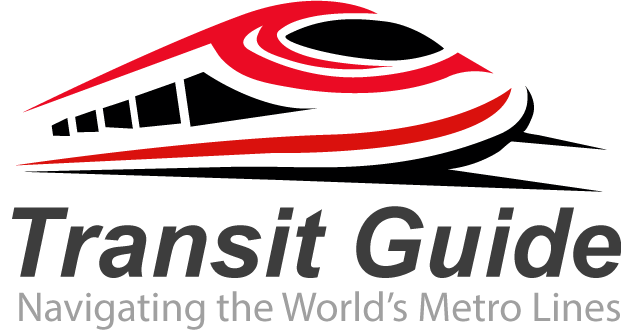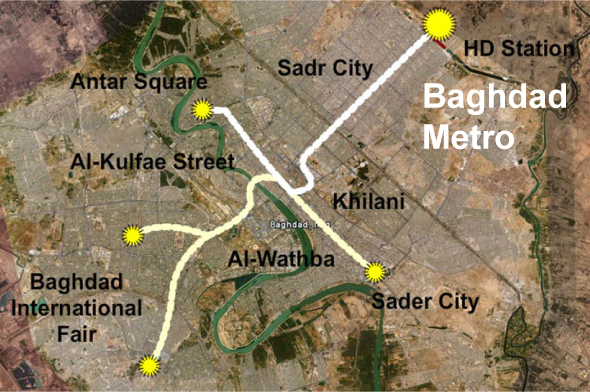Baghdad Metro System: Iraq’s $18 Billion Urban Transportation Revolution
The Baghdad Metro system represents one of the Middle East’s most ambitious urban transportation projects, designed to transform the mobility landscape of Iraq’s capital city. This colossal undertaking is valued at US$17.5 billion and promises to revolutionize public transportation for Baghdad’s growing population.
Project Overview and Scale
The current proposed plan consists of fully electric and automated (driverless) trains running on a railway system consisting of an underground tunnel portion as well as an elevated rail. The comprehensive network will feature seven main lines with a total length of more than 148km, 64 metro stations, strategically positioned throughout the city to maximize coverage and accessibility.
The Baghdad Metro project addresses the transportation needs of Baghdad’s population of over 8 million residents. Upon completing its various lines, the network will cover more than 85% of the city and its suburbs, with the capacity to transport nearly 5 million passengers daily.
Advanced Technology and Infrastructure
The Baghdad Metro will utilize cutting-edge transportation technology, featuring fully automated, driverless trains powered entirely by electricity. This modern approach ensures environmental sustainability while providing efficient and reliable service. The system’s design incorporates multiple transportation modes, including underground tunnels, elevated railways, and at-grade sections, allowing for optimal integration with Baghdad’s existing urban infrastructure.
The massive project includes the construction of 64 stations, including various types such as underground, elevated, and at-grade. Additionally, the project includes the construction of four maintenance depots, two control centers, ensuring comprehensive operational support throughout the network.
Project Development and Investment
The Iraqi Prime Minister’s Advisor for Transport, Nasser Al-Asadi, has announced the completion of route designs for the Baghdad Metro project, marking a significant milestone in the project’s development. The initiative operates under a Design, Build, Operate, Maintain, Finance, and Transfer (DBOMFT) model, attracting international investment and expertise.
Iraq has awarded the $18B Baghdad Metro project to European firms, with negotiations currently underway between Baghdad Municipality, the Investment Authority, and the selected consortium to finalize technical, financial, and operational details.
Impact on Urban Development
The Baghdad Metro system will serve as a catalyst for urban development, connecting central Baghdad with newer suburban areas and facilitating economic growth throughout the region. The project’s extensive coverage will reduce traffic congestion, improve air quality, and provide reliable transportation options for residents across all socioeconomic levels.
The metro network’s strategic design ensures accessibility to major commercial districts, educational institutions, healthcare facilities, and residential areas, making it an integral part of Baghdad’s urban planning strategy for the coming decades.
Future Prospects
As Iraq continues its infrastructure modernization efforts, the Baghdad Metro represents a cornerstone project that will enhance the city’s competitiveness as a regional hub. The system’s advanced technology and comprehensive coverage position Baghdad among modern cities with world-class public transportation networks.
The project’s completion timeline and phased implementation approach will allow residents to experience the benefits progressively, with initial lines expected to begin operations as construction phases are completed. This ambitious undertaking demonstrates Iraq’s commitment to sustainable urban development and improved quality of life for its citizens.

